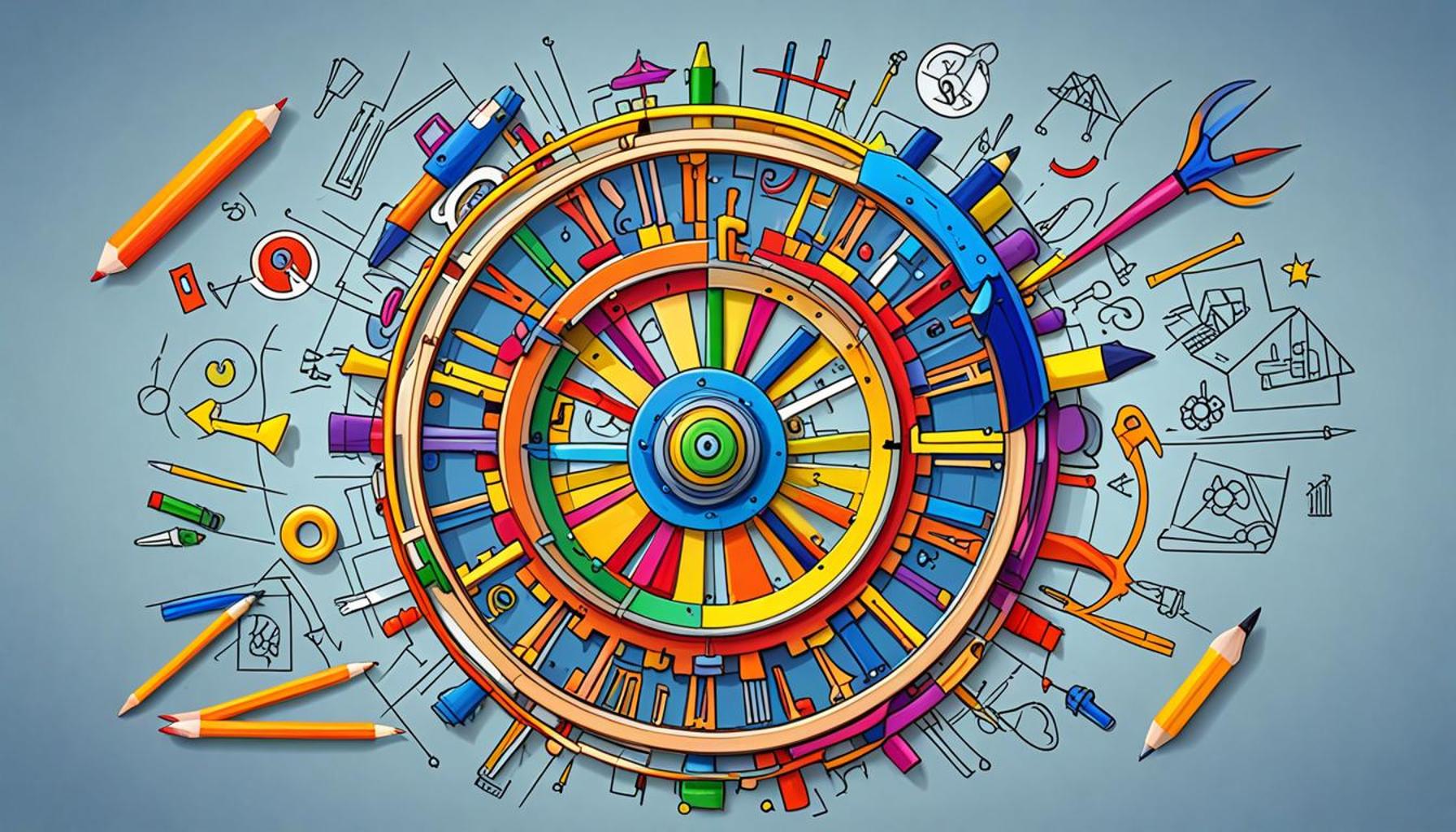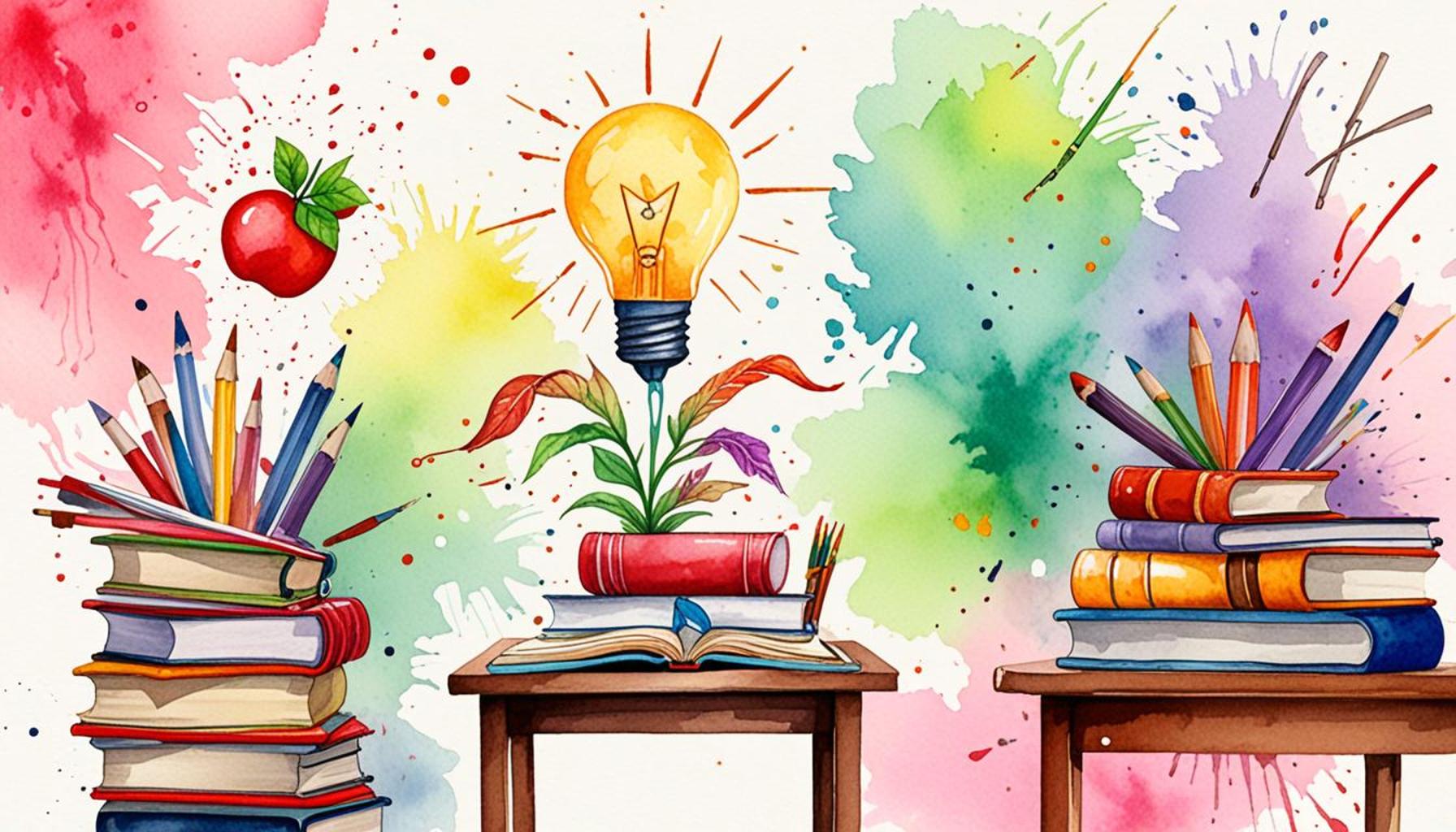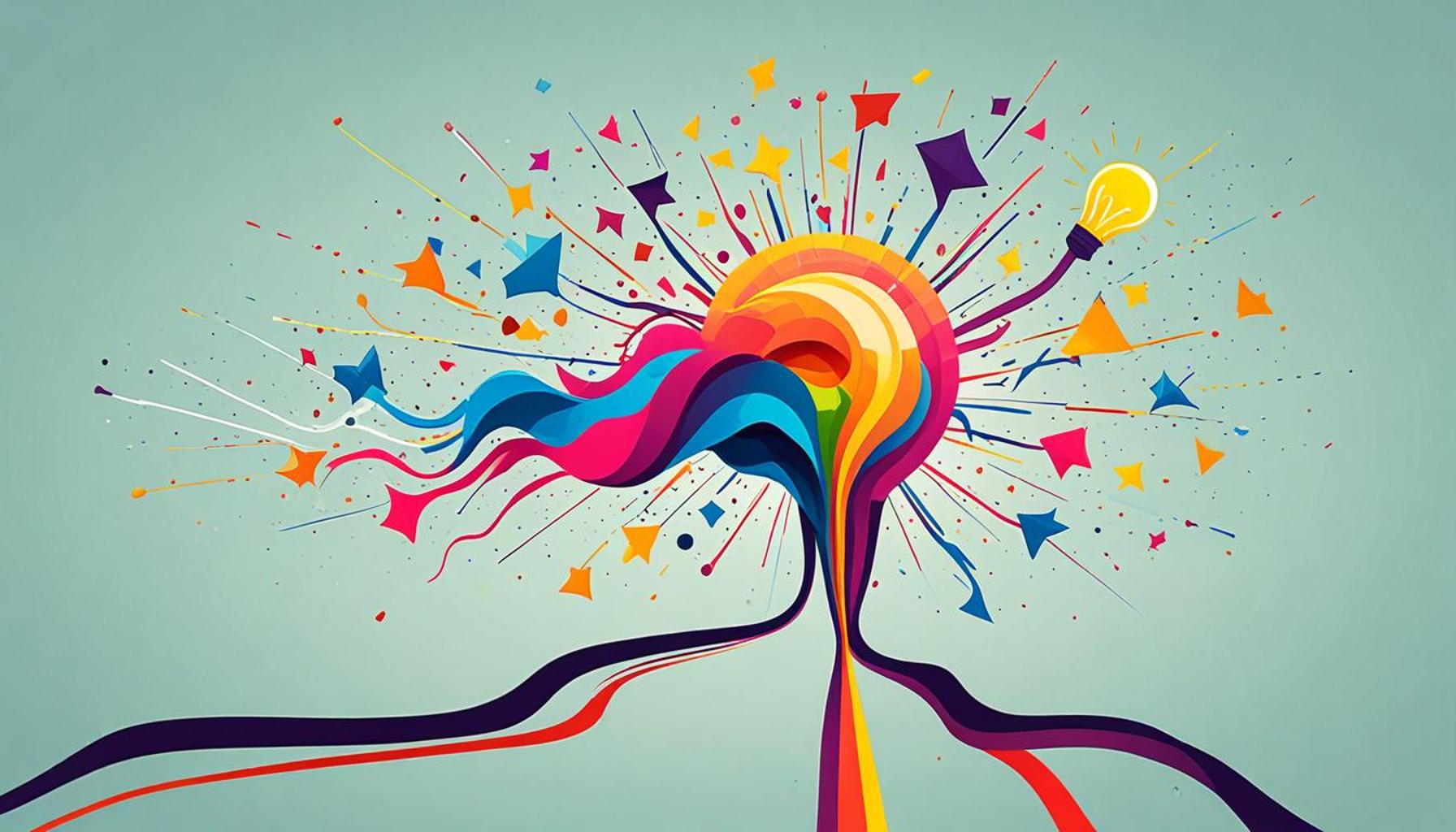The Learning Cycle: How Each Failure Contributes to the Development of Skills and Competencies

Navigating the Lessons Hidden in Setbacks
Failure is often viewed negatively, but in reality, it is a crucial aspect of the learning process. Each setback reveals insights and lessons that drive growth, particularly in skill development and competence. This article will explore how embracing failure can transform challenges into opportunities.
Resilience: The Backbone of Growth
Resilience is one of the most important traits we can cultivate in response to failure. Every setback fosters resilience, pushing individuals to adapt, rediscover their motivations, and ultimately persist through adversity. For many Nigerians, resilience is a cultural staple, often seen in everyday challenges, whether in academic pursuits or entrepreneurial endeavors. A notable example is the tale of many small business owners in Lagos who faced loss during economic downturns but rose again by learning from those experiences. These individuals often emerge with innovative strategies that not only sustain their businesses but also position them for future success.
Critical Thinking: Learning from Reflection
Another significant aspect is how mistakes can encourage critical thinking. When we encounter failures, it prompts reflective thinking, where learners analyze what went wrong and why. For instance, students in academic settings often perform poorly on exams; this can lead them to explore the depths of their study habits or comprehension methods. By asking questions like, “What did I overlook?” or “How can I approach this differently next time?” learners develop not only a better understanding of the subject matter but also sharpen their analytical skills, which are invaluable in any career.
Skill Refinement: Turning Errors into Expertise
In addition to building resilience and critical thinking, each error presents a unique opportunity for skill refinement. Mistakes highlight specific areas needing improvement and allow competencies to evolve over time. This is particularly relevant in industries such as technology, where rapid changes require constant adaptation. Nigerian tech startups often launch apps that initially flop; however, they take feedback from users to tweak features, ultimately leading to successful products. For instance, the popular e-commerce platform Jumia faced early criticism but adapted based on customer feedback, leading to a robust online marketplace today.
This cycle of learning through failure is not just a theory; it plays a vital role in various fields, from education to entrepreneurship. Many successful Nigerian entrepreneurs, such as those in the growing agricultural sector, credit their achievements to lessons learned from prior failures. Understanding how these experiences contribute to growth can shift perceptions surrounding failure.
As we delve deeper into this topic, we will uncover specific mechanisms of the learning cycle and practical strategies to make the most of our failures. Prepare to discover how each stumble can be a step towards mastery and success. With every hardship faced, there lies an invaluable lesson waiting to be discovered, integral to personal and collective prosperity. By adopting a mindset that views failure as a stepping stone rather than a stumbling block, individuals can unlock new potentials and reach greater heights in their endeavors.
ADDITIONAL INSIGHTS: Expand your understanding here
Transforming Failures into Growth Opportunities
Understanding the intricate learning cycle requires a closer examination of the ways in which failures catalyze development. Each misstep opens a door to critical life lessons, reshaping our approach to both personal growth and professional success. By analyzing and understanding failures, individuals can identify avenues for improvement and navigate the maze of their careers with greater confidence and insight.
Feedback Loops: The Essential Component
At the heart of the learning cycle lies the concept of feedback loops. These loops are crucial for honing skills and competencies, allowing individuals to evaluate their performance, identify shortcomings, and make necessary adjustments. For instance, consider young athletes in Nigeria who may struggle in early competitions. The feedback they receive from coaches and peers becomes invaluable. It helps them recognize not only their physical strengths but also areas where they need to bolster their technique. This iterative process encourages a growth mindset where setbacks are seen as integral to the training process.
The Importance of Adaptability
Adaptability is another critical attribute nurtured through failure. In a rapidly changing world, the ability to pivot and adjust based on learned experiences is paramount. For example, the flourishing entertainment sector in Nigeria showcases how artists adapt their styles and production techniques in response to audience feedback or market trends. When initially met with lukewarm reactions, some musicians and filmmakers re-evaluate their concepts and refine their skills, often leading to landmark successes. This adaptability exemplifies how failure can forge innovative pathways, pushing boundaries and redefining what is possible.
Real-World Applications of the Learning Cycle
The learning cycle is not limited to theory; its practical applications are visible in various sectors. Consider the healthcare industry, where medical professionals often learn from procedural errors. Each mistake made during training or practice serves as a crucial teaching moment, ultimately leading to better patient outcomes. This systematic reflection on their experiences not only enhances their competence but also builds a culture of safety where practitioners learn to handle crises more effectively.
Additionally, here are ways in which the learning cycle manifests in everyday life:
- Self-Assessment: Regularly evaluating personal performance to identify strengths and weaknesses.
- Seeking Mentorship: Learning from those who have navigated similar setbacks to gain insights.
- Continuous Education: Pursuing further training or courses to fill knowledge gaps highlighted by failures.
The intertwining relationship between failure and skill development cannot be overstated. By adopting a proactive approach towards failures, individuals in Nigeria and beyond can uncover rich layers of competence that not only foster personal growth but also contribute to collective advancement in various fields.
In the following sections, we will delve deeper into specific strategies that individuals and organizations can employ to harness the learning cycle, allowing them to transform failures into stepping stones towards mastery and achievement. Embracing this journey, fueled by a commitment to learning from setbacks, is essential for unlocking endless possibilities.
The Learning Cycle: Embracing Failure as a Pathway to Growth
In the realm of education and personal development, failure is often seen as a setback, but it can actually be a powerful catalyst for growth. Each failure we encounter is an opportunity to refine our skills and enhance our competencies. Understanding the dynamics of the learning cycle allows individuals to not only bounce back from their missteps but to thrive in the process.
One of the fundamental aspects of this learning cycle is the concept of reflection. After experiencing failure, taking time to evaluate what went wrong is crucial. This reflection helps to identify specific areas for improvement. For instance, a student who fails a math test may recognize that their study methods were ineffective. By adjusting their approach, they can develop better study habits, ultimately enhancing their problem-solving skills.
Moreover, failure fosters resilience—an essential trait in today’s fast-paced world. Each time we fail and choose to persevere, we strengthen our capacity to handle future challenges. This increased resilience can lead to improved critical thinking</strong skills, as individuals learn to analyze situations, weigh options, and make informed decisions more effectively.
Real-world examples abound, showcasing how some of the most successful figures have embraced failure. Thomas Edison, after numerous unsuccessful attempts to create the lightbulb, famously stated, “I have not failed. I’ve just found 10,000 ways that won’t work.” This mindset exemplifies the transformative power of failure within the learning cycle. Each setback provided Edison with insights that ultimately contributed to his groundbreaking achievements.
The learning cycle emphasizes that the journey through failure is not merely about overcoming obstacles but rather about cultivating a mindset that values continuous improvement. By understanding that failure is an integral part of the learning process, individuals can develop greater emotional intelligence and adaptability, skills that are invaluable in various areas of life.
| Advantages | Implications |
|---|---|
| Promoting Adaptability | Failure encourages individuals to adjust their strategies in response to challenges, fostering innovation. |
| Enhancing Problem-Solving Skills | Dealing with failure requires critical analysis and creative thinking to find alternatives and solutions. |
In this intricate learning cycle, failure is not the end but rather a stepping stone towards greater expertise and proficiency. Those who embrace the notion that every setback contributes to their development are likely to not only improve their skill set but also inspire others to view failure as a finely honed tool for success.
SEE ALSO: Click here to read another article
Leveraging Failure for Sustainable Development
Capitalizing on failures is not merely an individual endeavor; it has broader implications for sustainable development within communities and nations. In Nigeria, where vibrant entrepreneurial spirit thrives amidst challenges, understanding the learning cycle can lead to significant socioeconomic advancements. Each failed business startup is a stepping stone toward innovation, as entrepreneurs gather invaluable insights that refine their strategies for subsequent ventures.
Community Learning and Collective Growth
The learning cycle extends to communities, fostering a culture where groups benefit from shared experiences. In various parts of Nigeria, community leaders organize workshops to discuss failed projects, whether they pertain to local farming methods or infrastructural developments. By pooling their experiences, community members can collectively analyze what went wrong and implement better practices in future endeavors. This communal reflection not only builds resilience but also strengthens ties within the community, as individuals unite towards a common goal of growth.
Resilience Through Failure
Resilience is an essential quality nurtured by engagement with failure. The ability to bounce back from unsuccessful attempts promotes an unwavering commitment to pursuing goals, even in the face of adversity. Consider the rise of technology startups in Nigeria, where many young innovators experience setbacks during their product development phases. Instead of viewing these challenges as insurmountable barriers, they embrace them as meaningful lessons. Through collaboration, mentorship, and iterative testing, they develop products that not only meet market demands but also enhance their skill sets in design, coding, and business acumen.
The Role of Education in the Learning Cycle
Education plays a pivotal role in embedding the learning cycle’s principles within society. Schools and universities that prioritize experiential learning encourage students to engage in projects where failure is a possibility. For instance, university students in Nigeria often participate in startup incubators, where they can pilot their business ideas. These incubators simulate real-world conditions, allowing students to experience setbacks in a controlled environment. Educators emphasizing this practical approach foster a generation of learners who value resilience and adaptability as cornerstones of their professional journeys.
Furthermore, it is essential to incorporate lessons learned within educational curricula, stimulating discussions about famous failures that paved the way for eventual success. By examining the missteps of renowned figures, students glean motivational insights, creating a robust learning environment that celebrates persistence.
Encouraging a Culture of Acceptance
For the learning cycle to reach its full potential, a cultural shift is necessary. In Nigeria, promoting a culture that embraces failure as part of the learning process can significantly impact all sectors, from education and business to governance. Initiatives such as public dialogues and media campaigns that highlight stories of transformation following failure can foster this acceptance. By creating spaces where failures are discussed openly without stigma, society cultivates a mindset that sees risks as opportunities for learning. This inclusive approach can encourage budding entrepreneurs and innovators to take calculated risks, thus driving economic growth.
Ultimately, the vitality of the learning cycle lies in its capacity to instigate powerful change. By understanding how to process failures constructively, individuals can enhance their skills and competencies, contributing not only to personal advancement but also to the collective development of Nigerian society. As more individuals embrace this cycle, the nation stands poised for a future enriched by resilience, innovation, and unwavering progress.
YOU MAY ALSO LIKE: Read read another article
Conclusion: The Transformative Power of Embracing Failure
In the journey of personal and professional growth, the learning cycle serves as a powerful reminder that failure is not an endpoint but rather a critical phase in the development of skills and competencies. As explored throughout this article, the transformative potential of understanding and leveraging failure is evident in various aspects of Nigerian society. From the resilient entrepreneurs who navigate the complexities of the market to the students engaging in experiential learning, each failed attempt lays the groundwork for greater achievements.
When individuals and communities embrace failure, they unlock a pathway for innovation, collaboration, and shared resilience. By collectively analyzing setbacks and fostering a culture of acceptance, resourceful communities in Nigeria can address challenges head-on, paving the way for sustainable development and socio-economic progress. Schools and educational institutions that prioritize lessons from failure cultivate a new generation of thinkers who view challenges as opportunities, further enhancing their capacity to adapt and thrive in a constantly changing environment.
Ultimately, as we foster a narrative that celebrates growth through failure, Nigeria stands to benefit immensely. A society that acknowledges the learning cycle not only empowers its individuals but also reinforces community ties and drives economic advancement. By continuing to embrace this perspective, we can create a future where failure is valued, learning is continuous, and every setback is simply another lesson propelling us toward success.


